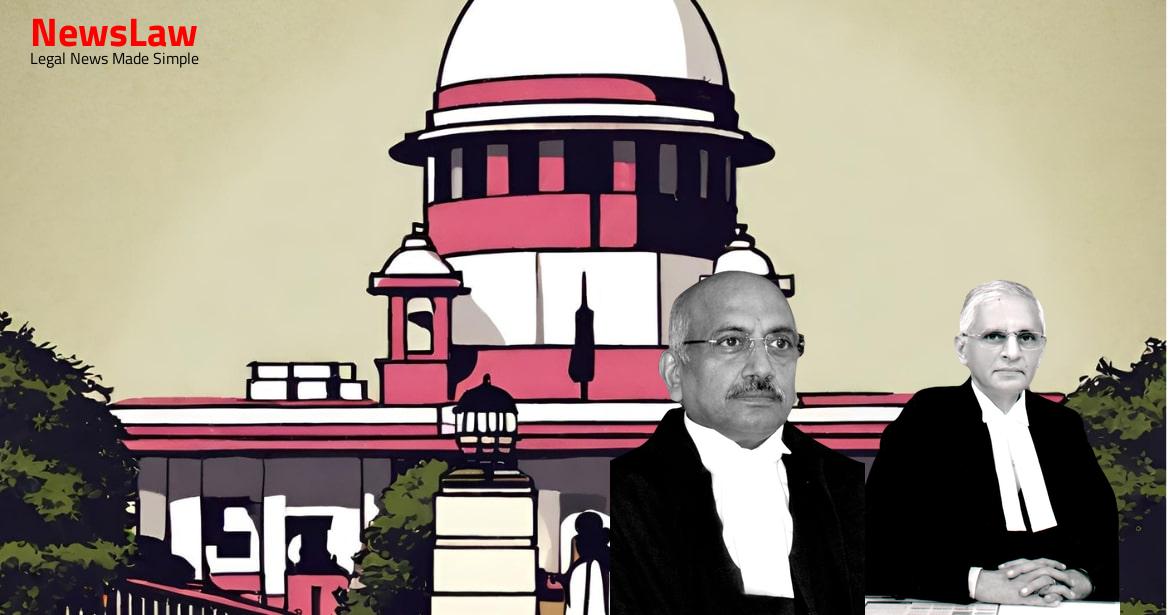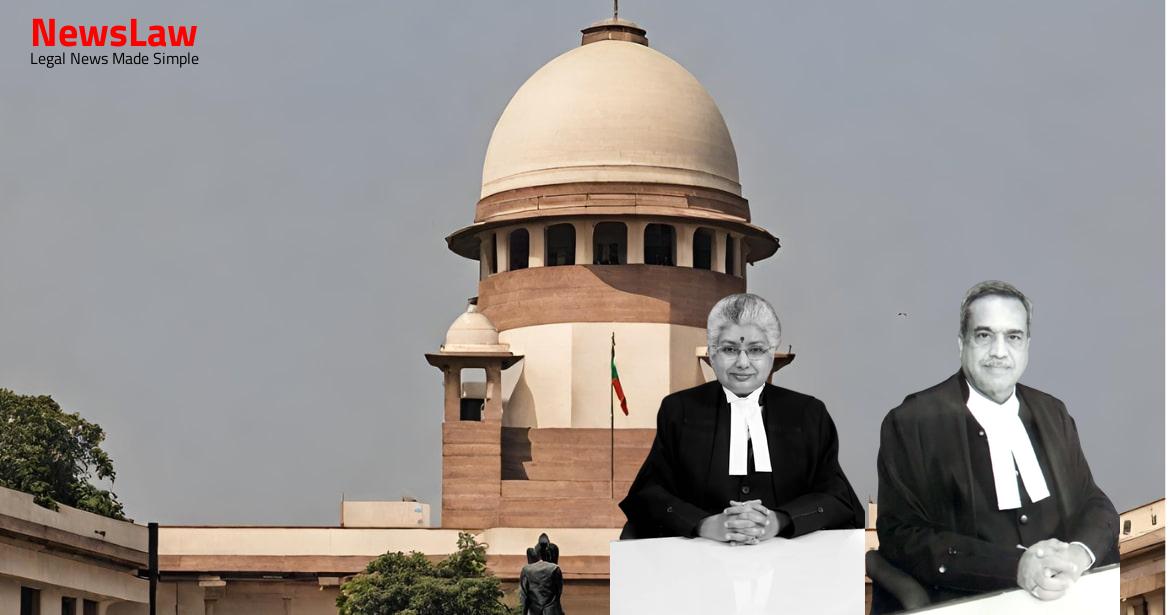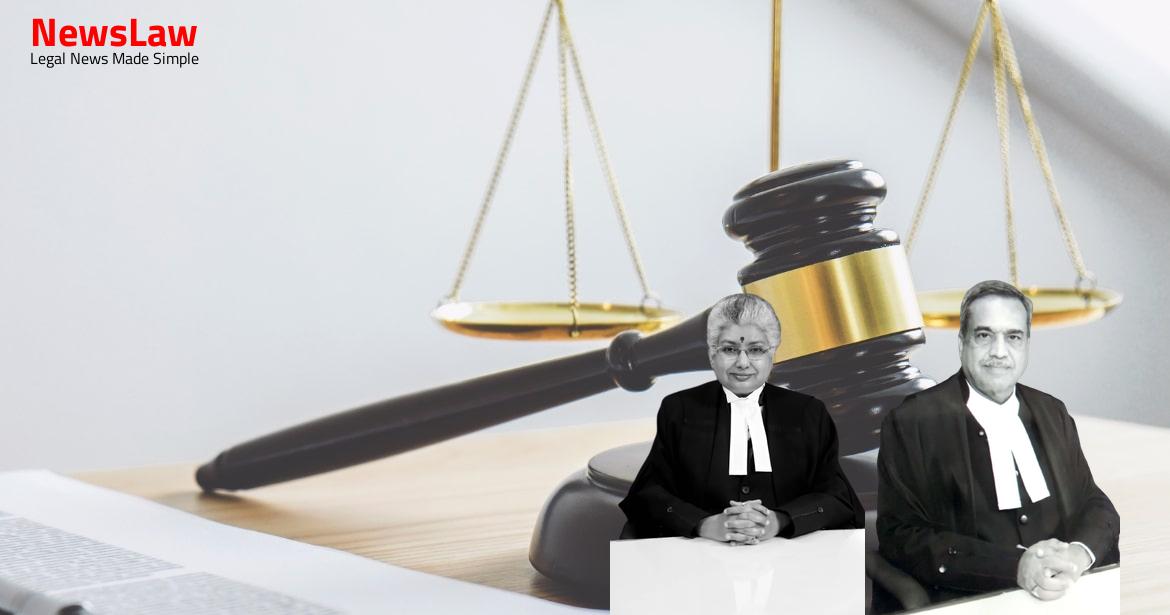Delve into a nuanced examination of the legal concept of irretrievable breakdown of marriage in this case summary. With a focus on the court’s authority to dissolve marriages under Article 142, the analysis showcases the complex legal considerations in such matters. Stay tuned to unravel the legal intricacies of marital disputes and the granting of divorce in challenging circumstances.
Facts
- The appellant-husband and the respondent-wife decided to marry on 7.2.2002.
- Appellant filed HMOP 24/2003 on 05.03.2003, later re-numbered as HMOP 10/2005, under Section 13(1)(i-a) of the Act.
- Decree of divorce was granted on 17.3.2008 citing irretrievable breakdown of marriage.
- The respondent filed an appeal on 1.7.2008, renumbered as CMA No.5 and 7 of 2011.
- Appellate court set aside the decree of divorce, allowing the petition for restitution of conjugal rights.
- Review petition was allowed by the impugned order dated 25.2.2019, which is challenged in the present appeal.
- Respondent claimed it was not within the jurisdiction to grant divorce on grounds of irretrievable breakdown of marriage.
- Respondent asserted that appellant refused to cohabit and the marriage was never consummated.
- Appellant issued a divorce notice on grounds of cruelty under Section 13(1)(i-a) of the Act.
- Respondent filed a petition for restitution of conjugal rights stating that appellant’s family demanded dowry, and consummation was impossible.
- The High Court noticed alleged cruelty in the marriage
- The High Court dissolved the marriage by passing a decree of divorce on the ground of irretrievable breakdown of marriage
- The judgment of the trial court granting the decree of divorce was restored in the third round of appeal
Also Read: Supreme Court Judgment on Single Till Mechanism for HRAB Calculation: A Comprehensive Analysis
Arguments
- Respondent was not willing to concede the decree of divorce on any terms.
- Both parties are educated and living separate lives for nearly two decades.
- Respondent was not disturbed by or wanting to affect the status of the second marriage.
- Unwilling to agree to a scenario where her marriage with the appellant ended, despite no maintenance being claimed due to financial status.
Analysis
- The court has the power under Article 142 of the Constitution to grant divorce in cases where the law may not provide a remedy.
- The Law Commission recommended recognizing situations of irretrievable breakdown of marriage.
- The case in question does not fall under mutual consent as both parties did not consent to divorce.
- Various instances where the court granted divorce under Article 142 have been noted.
- Irretrievable breakdown of marriage is not a ground for divorce under the Act but has been under consideration.
- Court granted divorce in cases where marriage never worked from the beginning and had no possibility of reconciliation.
- Repeated filing of cases and ongoing allegations were considered as mental cruelty in the case.
- The court examined the conduct of the parties after the initial trigger for divorce to determine mental cruelty.
- The court granted divorce in the case under Article 142 to provide a fresh start for the parties after two decades of battling each other.
- The court acknowledged the legal, economic, cultural, and religious aspects of marriage as a social institution.
- The law should consider when a marriage has broken down irretrievably.
- In cases of long continuous separation, it may be assumed that the matrimonial bond is beyond repair.
- The court has dissolved marriages under Article 142 of the Constitution when they are emotionally dead, unworkable, and beyond salvage.
- In rare cases, the court grants divorce based on irretrievable breakdown of marriage.
- Parties living separately for a long period with no chance of reunion may be granted divorce.
- In cases where marriage is a dead letter and mere formality, the court has dissolved them under Article 142 of the Constitution.
- Recognition of a marriage that is de facto defunct and declaration of the same de jure is in the interest of all concerned.
- There is a reference to a Constitution Bench on the parameters for exercising powers under Article 142 to dissolve marriages between consenting parties.
- Both parties agreeing to separation or divorce can move the court for a decree by mutual consent.
- When a marriage is totally dead, keeping the parties tied to it does not serve any purpose.
- The court may dissolve a marriage based on irretrievable breakdown of marriage even without the consent of both parties.
- Decree of divorce to be passed based on irretrievable breakdown of marriage and cruelty under Section 13(1)(i-a) of the Act.
- Grant of decree of divorce in favor of the appellant due to both grounds being in favor – irretrievable breakdown of marriage and cruelty based on subsequent conduct of the respondent.
Also Read: Selection and Appointment of Judicial Officers in Himachal Pradesh
Decision
- The writ petition was dismissed on 6.6.2019.
- The appeals were allowed, leaving the parties to bear their own costs.
- Marriage stands dissolved.
- Decree of divorce is passed.
Case Title: SIVASANKARAN Vs. SANTHIMEENAL (2021 INSC 467)
Case Number: C.A. No.-004984-004985 / 2021



